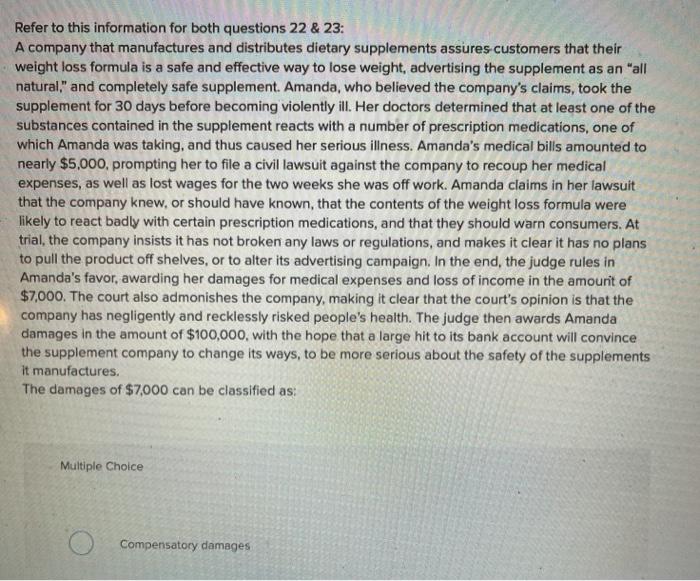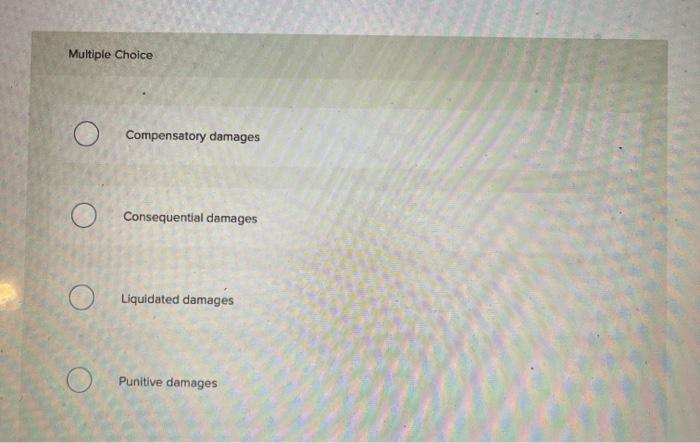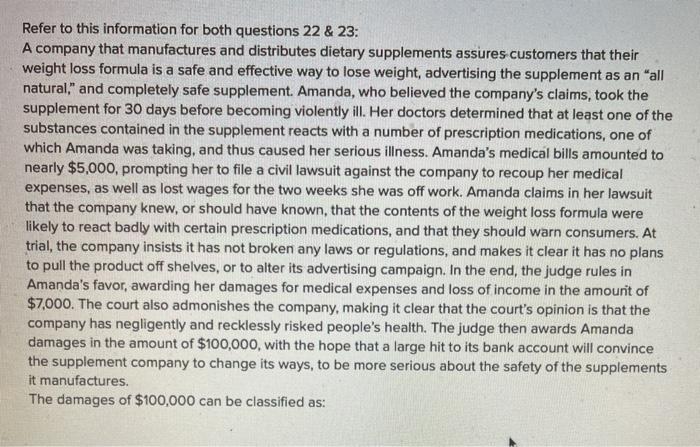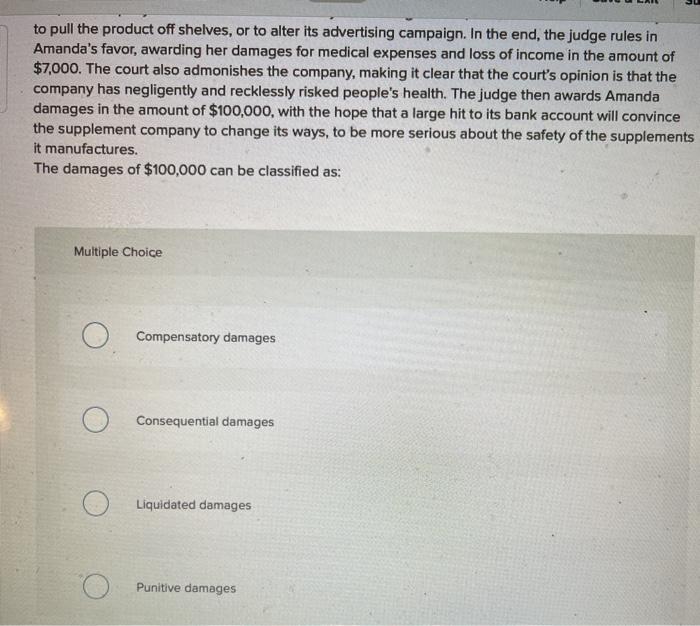Refer to this information for both questions 22 & 23: A company that manufactures and distributes dietary supplements assures customers that their weight loss formula is a safe and effective way to lose weight advertising the supplement as an "all natural," and completely safe supplement. Amanda, who believed the company's claims, took the supplement for 30 days before becoming violently ill. Her doctors determined that at least one of the substances contained in the supplement reacts with a number of prescription medications, one of which Amanda was taking, and thus caused her serious illness. Amanda's medical bills amounted to nearly $5,000, prompting her to file a civil lawsuit against the company to recoup her medical expenses, as well as lost wages for the two weeks she was off work. Amanda claims in her lawsuit that the company knew, or should have known that the contents of the weight loss formula were likely to react badly with certain prescription medications, and that they should warn consumers. At trial, the company insists it has not broken any laws or regulations, and makes it clear it has no plans to pull the product off shelves, or to alter its advertising campaign. In the end, the judge rules in Amanda's favor, awarding her damages for medical expenses and loss of income in the amount of $7,000. The court also admonishes the company, making it clear that the court's opinion is that the company has negligently and recklessly risked people's health. The judge then awards Amanda damages in the amount of $100,000, with the hope that a large hit to its bank account will convince the supplement company to change its ways, to be more serious about the safety of the supplements it manufactures. The damages of $7,000 can be classified as: Multiple Choice Compensatory damages Multiple Choice Compensatory damages Consequential damages Liquidated damages O Punitive damages Refer to this information for both questions 22 & 23: A company that manufactures and distributes dietary supplements assures customers that their weight loss formula is a safe and effective way to lose weight, advertising the supplement as an "all natural." and completely safe supplement. Amanda, who believed the company's claims, took the supplement for 30 days before becoming violently ill. Her doctors determined that at least one of the substances contained in the supplement reacts with a number of prescription medications, one of which Amanda was taking, and thus caused her serious illness. Amanda's medical bills amounted to nearly $5,000, prompting her to file a civil lawsuit against the company to recoup her medical expenses, as well as lost wages for the two weeks she was off work. Amanda claims in her lawsuit that the company knew, or should have known that the contents of the weight loss formula were likely to react badly with certain prescription medications, and that they should warn consumers. At trial, the company insists it has not broken any laws or regulations, and makes it clear it has no plans to pull the product off shelves, or to alter its advertising campaign. In the end, the judge rules in Amanda's favor, awarding her damages for medical expenses and loss of income in the amount of $7,000. The court also admonishes the company, making it clear that the court's opinion is that the company has negligently and recklessly risked people's health. The judge then awards Amanda damages in the amount of $100,000, with the hope that a large hit to its bank account will convince the supplement company to change its ways, to be more serious about the safety of the supplements it manufactures. The damages of $100,000 can be classified as: to pull the product off shelves, or to alter its advertising campaign. In the end, the judge rules in Amanda's favor, awarding her damages for medical expenses and loss of income in the amount of $7,000. The court also admonishes the company, making it clear that the court's opinion is that the company has negligently and recklessly risked people's health. The judge then awards Amanda damages in the amount of $100,000, with the hope that a large hit to its bank account will convince the supplement company to change its ways, to be more serious about the safety of the supplements it manufactures. The damages of $100,000 can be classified as: Multiple Choice Compensatory damages O Consequential damages Liquidated damages Punitive damages










